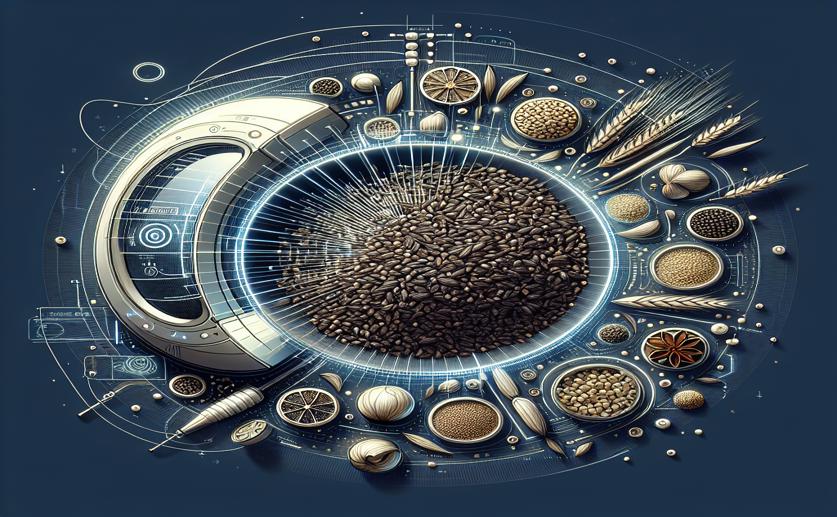
Continuous Cleaning of Cumin Seeds with Touch-Free Heating Technology
Jenn Hoskins
29th February, 2024

Image Source: Natural Science News, 2024
Key Findings
- Researchers developed a way to decontaminate cumin seeds using heat from electromagnetic fields
- Heating cumin seeds to 155°C for 60 seconds reduced harmful microbes effectively
- This method preserved the seeds' essential oils and color, important for flavor and appearance
References
Main Study
1) Continuous decontamination of cumin seed by non-contact induction heating technology: Assessment of microbial load and quality changes.
Published 29th February, 2024
https://doi.org/10.1016/j.heliyon.2024.e25504
Related Studies
2) Decontamination technologies for medicinal and aromatic plants: A review.
3) Emerging thermal imaging techniques for seed quality evaluation: Principles and applications.
4) Effect of ultraviolet and far infrared radiation on microbial decontamination and quality of cumin seeds.



 27th January, 2024 | Jenn Hoskins
27th January, 2024 | Jenn Hoskins